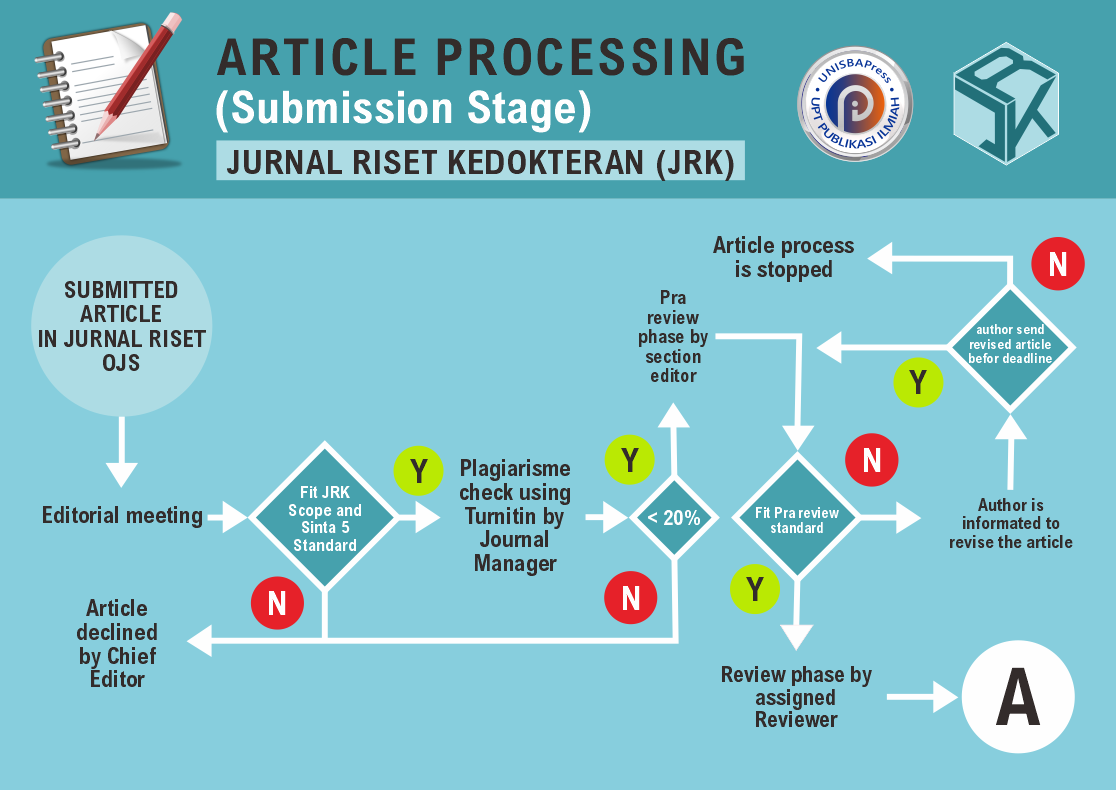Gejala Gastrointestinal Memengaruhi Prognosis pada Pasien Covid-19
DOI:
https://doi.org/10.29313/jrk.vi.872Keywords:
COVID-19, Gejala gastrointestinal, PrognosisAbstract
Abstract. Corona Virus Disease-19 or COVID-19 is a disease with a million faces. The symptoms of this disease varied from classical symptoms such as fever, dry cough, tachypnea, anosmia and ageusia, to non-classical symptoms in the form of gastrointestinal symptoms. Gastrointestinal (GI) symptoms in COVID-19 includes diarrhea, nausea and vomiting, and abdominal pain. The prognosis of COVID-19 is determined by several factors with the prominent factors being aged older than 70 years, comorbidities including cardiovascular diseases, chronic obstructive pulmonary disease, hypertension, etc., lymphopenia, and increased lactic dehydrogenase levels. GI symptoms could influence prognosis through worsening the severity of the disease, increased incidence of acute respiratory distress syndrome (ARDS), and liver injury. The worsening severity of the disease and increased incidence of ARDS can be explained with the gut-lung axis, where the homeostasis disruption of microbiota of the gut can influence the respiratory system through common mucosal immune system and vice versa.
Abstrak. Corona Virus Disease-19 atau disingkat COVID-19 adalah penyakit dengan sejuta wajah. Gejala yang ditimbulkan oleh penyakit ini beragam. Mulai dari gejala klasik, yaitu demam, batuk kering, takipnea, anosmia dan ageusia, hingga gejala non-klasik berupa gejala gastrointestinal. Gejala gastrointestinal (GI) pada COVID-19 adalah diare, mual dan muntah, dan nyeri abdominal. Prognosis pada COVID-19 ditentukan oleh beberapa faktor dengan faktor utama yang telah terbukti memengaruhi prognosis adalah usia diatas 70 tahun, kondisi komorbid seperti penyakit kardiovaskular, penyakit paru obstruktif kronis, hipertensi, dsb., limfopenia, dan kadar lactic dehydrogenase yang tinggi. Gejala GI dapat memengaruhi prognosis melalui peningkatan tingkat keparahan penyakit, tingginya kejadian acute respiratory distress syndrome (ARDS), dan cedera hepar. Peningkatan tingkat keparahan dan tingginya kejadian ARDS dapat dijelaskan oleh gut-lung axis, dimana terganggunya homeostasis mikrobiota usus dapat memengaruhi sistem pernapasan melalui common mucosal immune system. Begitupun sebaliknya, kelainan di mikrobiota sistem pernapasan juga akan memengaruhi saluran pencernaan melalui regulasi imun.













